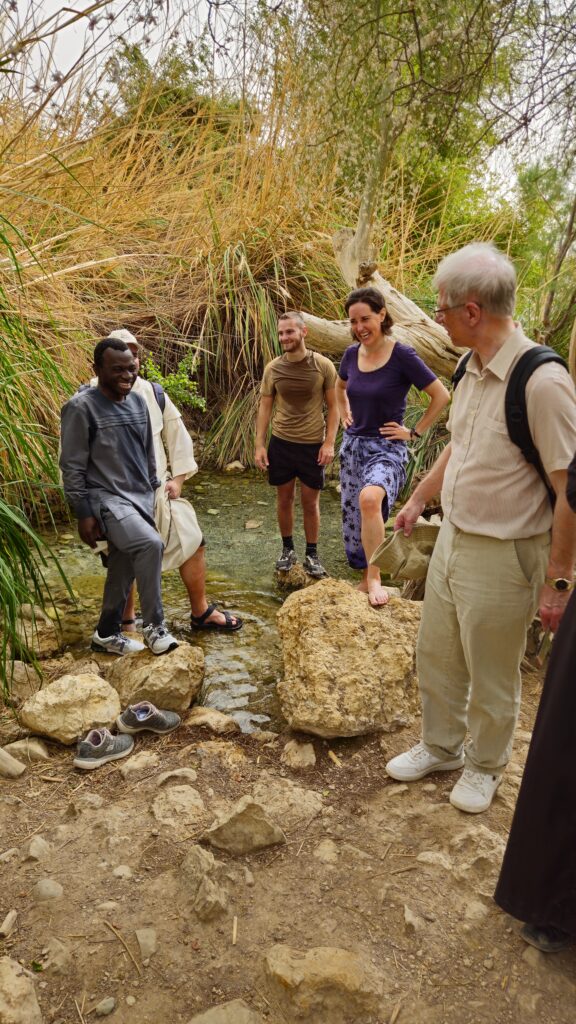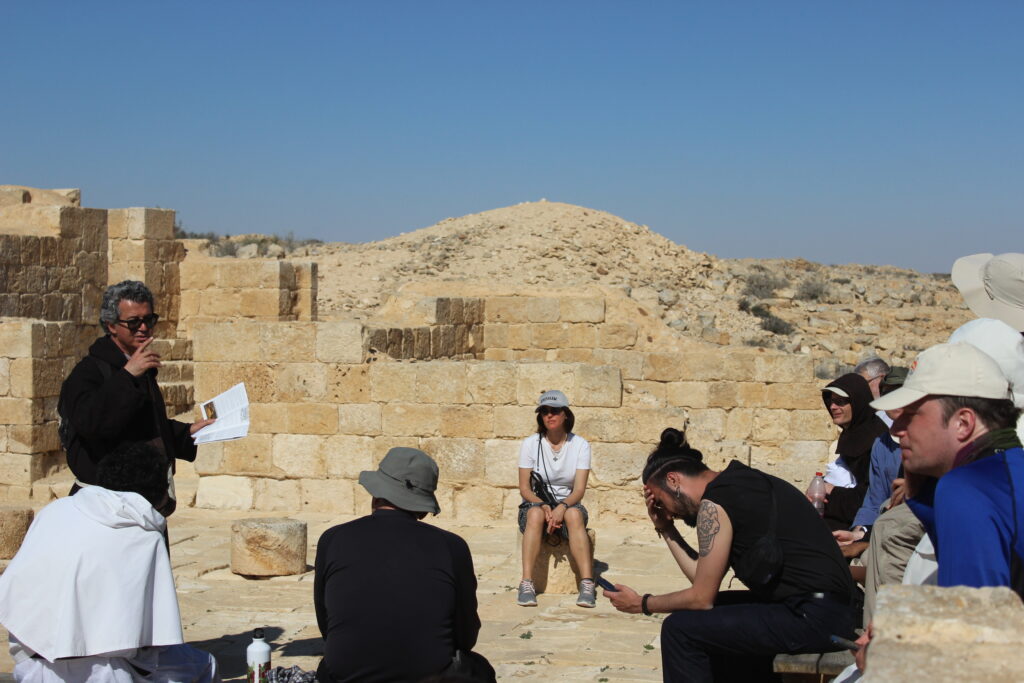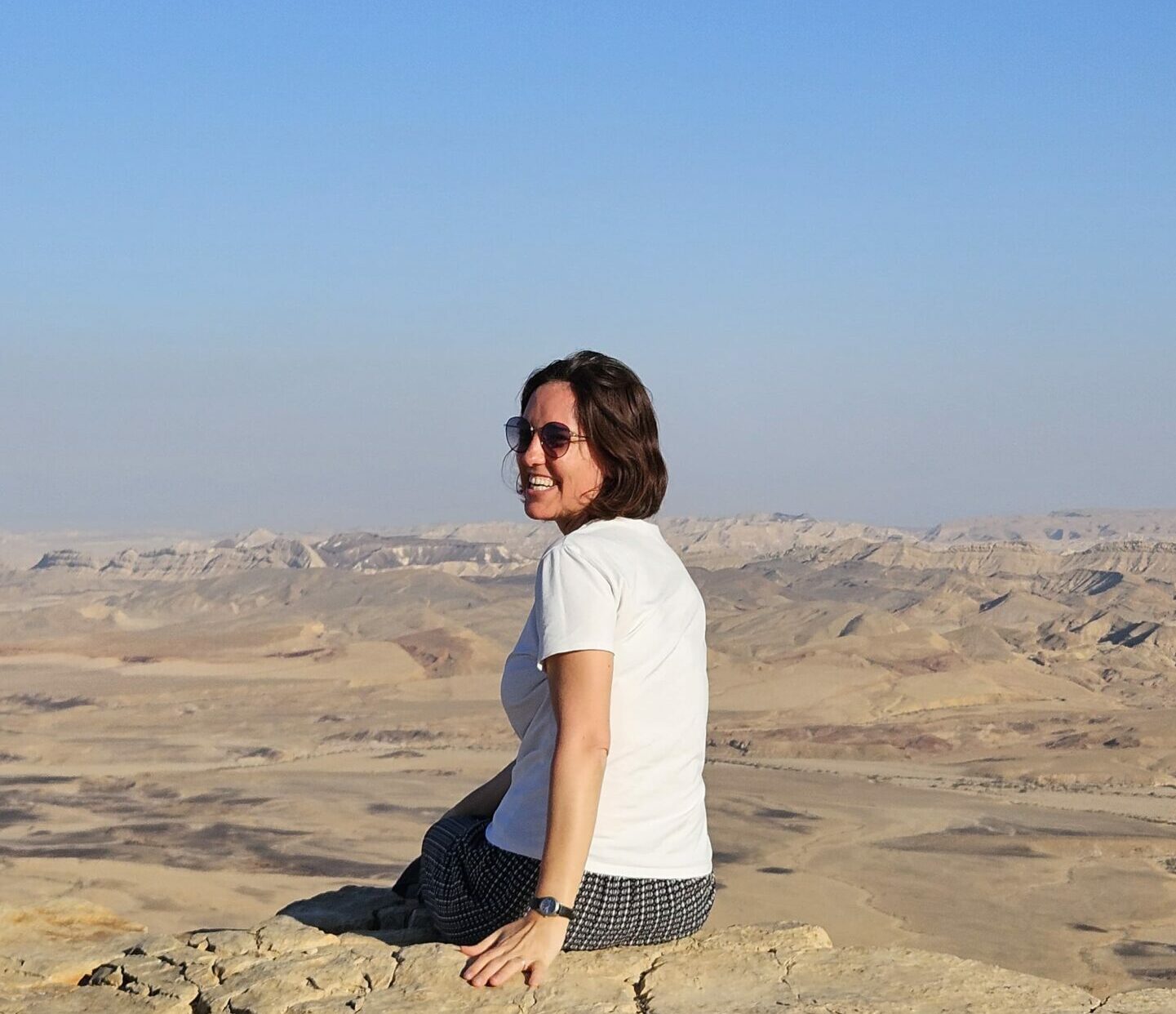Could you introduce yourself?
My name is Marie-Thérèse Gerstner, and I’m currently pursuing a PhD at the University of Graz in Austria, focusing on the destruction of Jerusalem in the Gospel according to Saint Luke. I belong to the Idente Missionaries, a Spanish-founded religious community. I’m spending a semester at the École Biblique et Archéologique Française de Jérusalem thanks to the Gamberoni Scholarship.
Why did you choose to study at the ÉBAF?
The ÉBAF is well-known in the academic circles where I completed my previous studies, including the Pontifical Biblical Institute in Rome. There, we spent a great deal of time studying the texts—but what I felt was missing was the tangible experience of the places those texts speak about. Of course, the written word is fundamental, but I’ve come to realize that each day spent in Jerusalem enriches my understanding of Scripture in ways no book ever could.
The ÉBAF itself is built on an archaeological site, bringing us closer to the historical realities we study. It allows us to make the abstract concrete. I came here to deepen my research and to meet scholars from around the world. We share so much—not only in class, but in everyday life. It’s a welcome change from my past studies, where I often worked in solitude.
What is your academic project?
I’m here to expand my historical and topographical knowledge of the Holy Land by confronting it directly through the terrain. This hands-on approach gives me renewed energy and clarity as I continue to develop my doctoral research.
 Photo: ÉBAF, Ordo Prædicatorum.
Photo: ÉBAF, Ordo Prædicatorum.
Marie-Thérèse and the students in topography class.
What, in your view, are the strengths of the ÉBAF?
Its location—above all! I’ve often heard people say, “You can’t say you study the Bible if you’ve never been to Jerusalem.” That’s stayed with me. Another major strength is the diversity of the courses, students, and researchers. In a typical faculty, you might have one professor for the Old Testament, another for the New Testament, and that’s it. Here, perspectives multiply very quickly.
Living and studying in the same place encourages rich and frequent exchanges. The ÉBAF itself is a harmonious place, offering an ideal setting for both academic work and personal growth.
How do you reconcile reason and faith?
I believe faith opens up reason. Reason is the tool I use in my research—it helps me make sense of what I observe and to communicate it clearly. Faith is both my starting point and my goal. It helps me see more clearly where God is at work.
What does the Holy Land mean to you?
This chosen land and its holy places represent, for billions of people, a homeland.
 Photo: ÉBAF, Ordo Prædicatorum.
Photo: ÉBAF, Ordo Prædicatorum.
Researchers during the Neguev study trip.
Has your time in Jerusalem changed your perception of the Holy Land?
Absolutely. Before coming here, you imagine so many things—but once you’re on the ground, you begin to grasp both the complexity and the incredible richness of this reality. As biblical scholars, we often focus mainly on the New Testament period of Jerusalem, rarely looking beyond the Roman era. But here, we encounter a vibrant and diverse religious presence every day.
Saint Stephen, the first martyr of the Church, is a constant reminder of that legacy—we live surrounded by his witness. In terms of archaeology, here and throughout Jerusalem, we walk quite literally in the footsteps of those who came before us. Centuries of history seem to be watching us.
What would you say to someone thinking of studying at the ÉBAF?
I would say: come, without hesitation! If you’re enrolled at a German university, you can apply for the Gamberoni Scholarship, which covers all expenses. It’s a once-in-a-lifetime opportunity to live and study in Jerusalem.
It’s especially worthwhile for biblical studies and theology. Living here as a Christian gives you a much deeper perspective on the faith. Christianity has developed so differently in the East compared to the West—this has been a real eye-opener for me. It’s also helping me grow more fully into my Catholic identity. I came to Jerusalem with the hope of encountering Christ in a new and living way—and that hope is being fulfilled.
What message would you like to share with the ÉBAF’s donors?
First and foremost: thank you to all those who already support the ÉBAF! You are sustaining a truly unique institution within Christianity and within the Church. Theology and exegesis are facing challenging times—we’ve lost some of the beauty that once inspired faith and study. But here, a deep love for Scripture thrives. It’s an opportunity to share new biblical and archaeological insights with future generations of Christians and scholars. And that can truly change lives.

